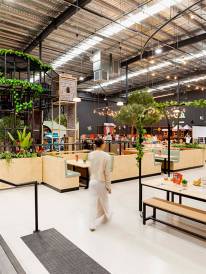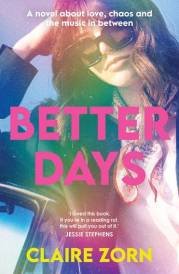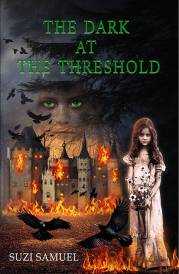Debbie Da Silva Cancer in the School Community Interview
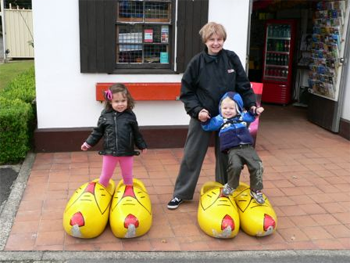
New Cancer in the School Community resource from Cancer Council out now
A new resource launched by Cancer Council will help schools across the country to support a growing number of students, families and staff in its community who are affected by a cancer diagnosis.
Whether it's a personal diagnosis of a student or staff member, or a loved one of anyone within the school (e.g. a parent), Cancer Council's fully revised Cancer in the School Community resource explains how school staff can support their community throughout all stages of cancer.
In Australia, about 1,000 school-age children and more than 127,000 adults are diagnosed with cancer each year. About a third of those adults are under 60, and many will have a school-aged child.
In 2010, Padstow mother of two Debbie Da Silva was diagnosed with an aggressive form of breast cancer while her daughter Brianna was three and son Luke was 13 months old. Ms Da Silva underwent surgery and chemotherapy, and her cancer journey continued as her children began school.
"The impact of cancer and its effects, witnessed by my young daughter Brianna, empowered her to help others. She was in school when I underwent my reconstructive surgery, so I spoke with her principal and teachers to let them know I'd be in hospital for about a week.
"Brianna was old enough to understand what I was going through and had been by my side throughout this journey, so I wanted her to have a sense of normality and stability at school. The staff at Padstow North Public School were amazing in providing her support and making her experience as normal as possible," Ms Da Silva said.
Last year Ms Da Silva and her daughter, with the support of their school community, held a school fundraiser in which they cut and donated their long hair for Variety's Princess Charlotte Alopecia Program. Padstow North Public School held the event at a school assembly, and at the same time also helped the family raise funds for Cancer Council NSW.
"Through the fundraiser, the school opened up the conversation about cancer in a way that was appropriate for students to understand. This really brought the whole school together and I am so grateful for their support throughout our journey," Ms Da Silva said.
Padstow North Public School Principal, Natalie Armstrong, said having a parent with cancer could have a profound impact on a student and the school wanted to show support by teaching students more about cancer.
"For our school, the most important message from the resource Cancer in the School Community is that each cancer journey is different, and every family navigates it in their own way. Our school community can support students and their families on that journey," Ms Armstrong said.
Cancer in the School Community is relevant for all primary and secondary school staff throughout Australia and may also be useful for parents, students or family members.
To ensure every school community is able to respond effectively and sensitively to issues that cancer may raise in the school environment, Cancer in the School Community is available for download at www.cancercouncil.com.au/cancer-in-schools, or schools can order free hard copies by calling Cancer Council on 13 11 20 Information and Support Service.
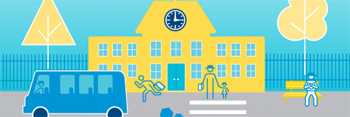 nterview with Debbie Da Silva
nterview with Debbie Da Silva
Question: Can you share your story of cancer diagnoses with us?
Debbie Da Silva: I was just a happy, busy mother in 2010, looking after my three-year-old daughter, Brianna, and toddler son, Luke. I had breastfed my daughter until 15 months and my son still enjoyed being breastfed, especially at night. Life was good.
I had overcome mastitis while breastfeeding Brianna and Luke. After noticing some lumps in my left breast, I went to my General Practitioner (GP) who referred me for an ultrasound. The sonographer could not see anything sinister and the report came back as calcified milk deposits. I happily continued breastfeeding but was referred for two more ultrasounds, all of which reported the same result.
My GP remained concerned and referred me to a surgeon for biopsies of the lumps. When I returned to his practice in September 2010, with 13-month-old Luke in his pram, Brianna and my mum with me, the last thing on our minds was breast cancer. At 37 years old, and with two young dependent children, I faced the fear of death."
My body-changing operation came and went well but, seeing my image in the mirror after my bandages were removed, was hard to deal with… I had a very aggressive, unusual cancer, which was stage three. There was not one tumour but numerous ones within the breast.
Question: What is the Cancer in the School Community guide?
Debbie Da Silva: Cancer in the School Community is a free guide from Cancer Council for principals and school staff who would like to support students, families and colleagues affected by cancer. The content is relevant for all primary and secondary school staff throughout Australia.
Cancer in the School Community provides tips on communicating with people of all ages about cancer, and it includes real-life stories of school community members who have faced experiences similar to mine in the past.
Question: How has your experience shown the importance of the Cancer in the School Community information resource?
Debbie Da Silva: The impact of cancer and its effects, witnessed by my young daughter Brianna, empowered her to help others. She was in school when I underwent my reconstructive surgery, I spoke with her Principal and teachers to let them know I'd be in hospital for about a week. Brianna was old enough to understand what I was going through and had been by my side throughout this journey and I wanted her to have a sense of normality and stability at school. The staff at Padstow North Public School were amazing in providing her support and making her experience as normal as possible.
Question: How did the school your children attend implement the Cancer in the School Community resource?
Debbie Da Silva: In 2014, Brianna decided that she would grow her hair long and donate it to Variety's Princess Charlotte Alopecia program but she also wanted to raise funds for Cancer Council NSW to help find a cure. At seven years of age she did just that. Her hair was to a length that she could easily sit on and she had it cut off at Padstow North Public School's assembly in front of all her peers. She raised $1,864 for Cancer Council NSW. Channel 10 weather reporter Tim Bailey came to her school and we were interviewed by him. Brianna got the opportunity to show her cut off hair to thousands of viewers. She also inspired some friends to donate their hair and another ran a Cancer Council fundraiser to aid vital research.
Through the fundraiser, the school opened up the conversation about cancer in a way that was appropriate for students to understand. This really brought the whole school together and I am so grateful for their support throughout our journey.
Question: What tips do you have for teachers who want to provide support for students who have a parent recently diagnosed with cancer?
Debbie Da Silva: When a parent is told they have cancer, their first concern is often for their family. It is common for parents to have concerns about how their children will react and how a diagnosis will impact their lives at home and at school.
Cancer in the School Community outlines ways that the school can help students to cope after a family member's cancer diagnosis. This includes connecting students with a year adviser or wellbeing coordinator to monitor their behaviour and offer school counselling, arranging a school visit from a clinical nurse to conduct an education session, or connecting the student with organisations that specialise in supporting young people affected by cancer, like CanTeen and Camp Quality.
Question: Can you tell us about the Cancer Council fundraisers you've participated in?
Debbie Da Silva: After Brianna's first Chop for Charity Cancer Council fundraiser in 2014, Brianna and I joined forces in August 2017 and ran the event -Brianna and Debbie's Double Chop for Charity'. We both had very long hair again and for the second time for both of us, we donated our hair to Variety's Princess Charlotte Alopecia Program to be made into wigs for kids without hair. Padstow North Public School showcased the event at their assembly and we again raised money for Cancer Council NSW, totalling $1,638. We are so grateful to our school and community for helping us make a difference to those affected by cancer. Our dream is a world without cancer.
Question: How can Australians contribute to the Cancer Council?
Debbie Da Silva: You can support Cancer Council's lifesaving work by donating online at www.cancercouncil.com.au
Or host your own Do it For Cancer fundraiser like Brianna and I. Cancer Council NSW's Do It For Cancer program supports individuals and groups to fundraise in any way they like. Simply pick a fundraising idea and they'll provide you with the assistance you need to make it a success!
Interview by Brooke Hunter
MORE

